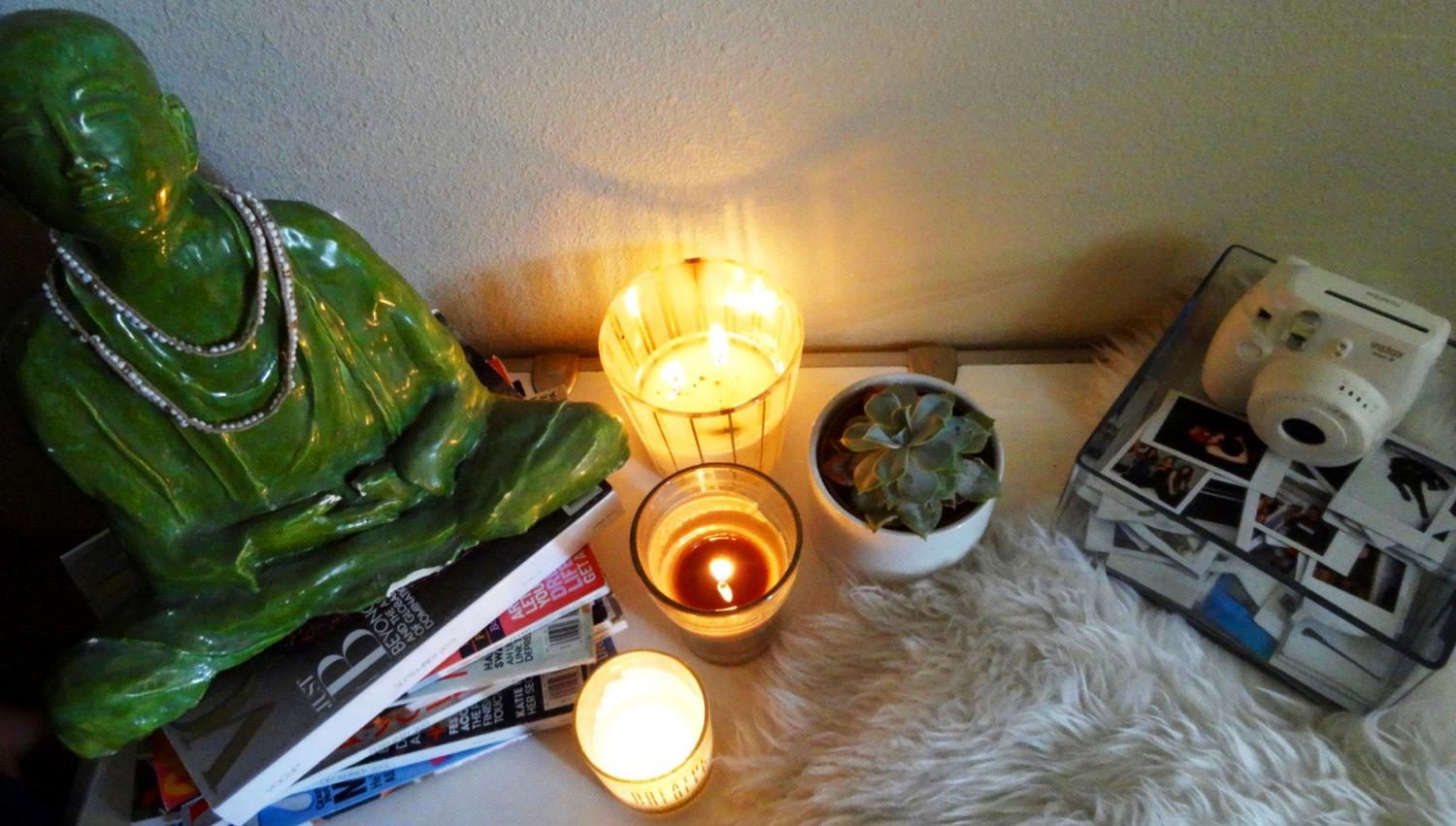The science of home decor: achieving feng shui
January 26, 2016
Life is a balancing act.
In college, it is almost necessary to be on top of your game in order to stay in tune with your finances, get good grades, somehow find time to sleep and all the while maintain a social circle.
The theory behind the 3,000-year-old Chinese art of Feng Shui is that when a person has a certain combination of the main elements – these being wood, fire, earth, water and metals – they will have a calm, prosperous and balanced life.
In one researcher’s opinion, this idea of prosperity has taken over the consumer market to create simplified versions of Feng Shui.
“People are often initially attracted by a serious interest in the idea of a life in harmony with nature, then bewildered by assumptions derived from Asian culture and folk religion. And now everything is being reborn in a special Feng Shui incarnation: you can buy Feng Shui food, Feng Shui clothes, Feng Shui music and so on,” Shan-Tung Hsu, professor at the Blue Mountain Feng Shui Institute, said in his book, Fundamentals of Feng Shui.
Through my own research, I have learned that this ancient practice is much more complicated than I first thought. There is ch’i to remember, the symbols of yin-yang to consider and always making sure to follow the Tao.
All great words, but their true purpose in Feng Shui is often lost when someone gets bogged down in the details of what each means and their functions. You must remember the big picture and then use these practices to achieve the desired result of a space with good Feng Shui.
“From an interior designer’s perspective, I don’t practice Feng Shui unless it’s really a client’s requirement or recommendation,” said Genell Ebbini, a registered interior designer and instructor at the school of design and construction at WSU. “When I think about it and I look at that and I look at what we do as interiors, it almost makes sense. Everything is purposeful.”
However, the general idea is that unless you have a belief in Feng Shui, it does not work. Allison Matthews, a professor in psychology at the WSU Tri-Cities campus, whose research interest is in environmental and social factors in cognitive processes, agreed with this statement.
“Most of the research that did come up in other areas seemed to be more about people’s pre-existing beliefs about Feng Shui influencing their preference in design, (e.g., if someone believes Feng Shui is important, they will prefer environments designed based on Feng Shui), but nothing studying if Feng Shui designs actually have any effect (good or bad),” Matthews said.
Although her expertise is specifically about a person’s cognitive functions, Matthews’ research confirmed that Feng Shui is more related to the design of a space than the scientific psychology of a person. It is a person’s perception of the energy generated from the five main elements that creates the feeling of well-being and good Feng Shui.
For college life, Feng Shui can be manipulated for a space using decorations as most people live in an architecturally set location. Returning to the five elements, someone can create a dorm room that has good Feng Shui and still remain within the parameters of the housing guidelines for WSU residential living.





















